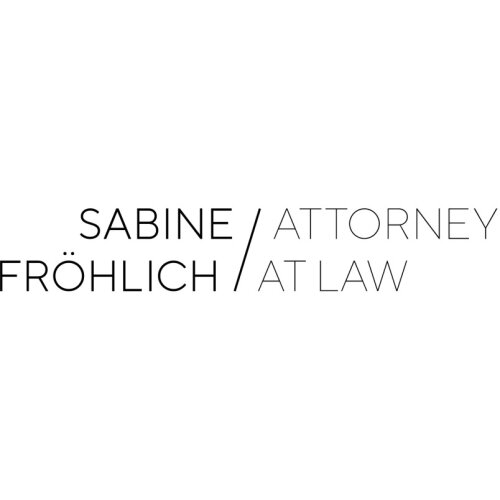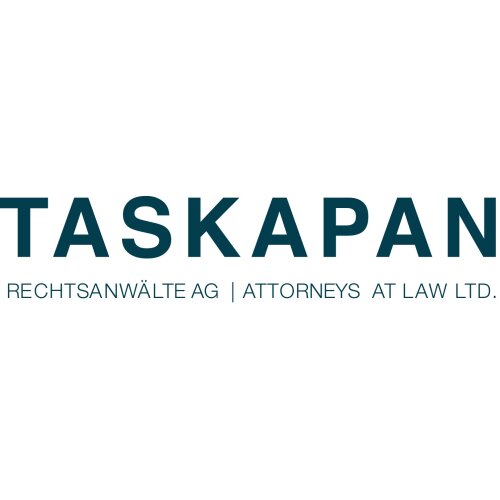Best Restructuring & Insolvency Lawyers in Vaduz
Share your needs with us, get contacted by law firms.
Free. Takes 2 min.
List of the best lawyers in Vaduz, Liechtenstein
About Restructuring & Insolvency Law in Vaduz, Liechtenstein
Restructuring & Insolvency law in Vaduz, Liechtenstein, governs the processes and legal frameworks for companies or individuals facing financial distress or insolvency. The purpose of such laws is to provide organized ways to restructure debts, reorganize business operations, or, if necessary, liquidate assets for the benefit of creditors. Vaduz, being the capital and financial center of Liechtenstein, is home to many international businesses and financial institutions. The country's insolvency system is designed to protect both the rights of creditors and the interests of the insolvent party, following modern standards aligned with European principles while maintaining its unique legal traditions.
Why You May Need a Lawyer
Facing insolvency or financial trouble can be overwhelming, whether you are an individual, a business owner, or a creditor. In Vaduz, legal advice is crucial in several scenarios, including:
- When you or your company are unable to meet debt obligations as they fall due
- If creditors are taking legal actions to recover debts
- When you need to explore restructuring options to reorganize debts or business operations
- In cases involving cross-border insolvency, with assets or creditors in multiple countries
- If you suspect fraudulent or improper conduct in connection with insolvency
- During negotiations with creditors or banks regarding settlements or debt repayments
- When facing bankruptcy filings from others or considering filing voluntary bankruptcy
- If you are a creditor seeking to maximize your recovery from an insolvent debtor
Competent legal support helps you understand your rights, obligations, and potential consequences under Liechtenstein’s restructuring and insolvency laws. Lawyers also assist in court proceedings, negotiations, and compliance with legal and procedural requirements.
Local Laws Overview
Restructuring & Insolvency in Vaduz is mainly governed by the Liechtenstein Bankruptcy Act (Konkursordnung or KO), along with provisions from the Civil Procedure Code and other financial regulations. Key aspects include:
- Insolvency Tests: Legal insolvency arises when a debtor can no longer meet mature payment obligations or liabilities exceed assets.
- Initiating Insolvency Proceedings: Proceedings can be initiated by the debtor or creditors through the district court in Vaduz.
- Effects of Insolvency: Once proceedings commence, the court may appoint an insolvency administrator. Management's power over the debtor’s assets is typically suspended and transferred to the administrator.
- Debt Restructuring Options: The law allows for restructuring plans, which may be proposed to and approved by creditors, potentially allowing the debtor to continue business operations.
- Creditor Protections: There are mechanisms for the registration and verification of creditor claims, as well as strict rules against preferential and fraudulent transfers.
- Cross-Border Aspects: Liechtenstein’s membership in the European Economic Area (EEA) means certain European restructuring and insolvency regulations apply, especially regarding recognition of foreign proceedings.
- Personal Bankruptcy: Individuals can also be subject to insolvency proceedings, allowing for asset liquidation or, in some cases, restructuring of personal debts.
Frequently Asked Questions
What is the difference between restructuring and insolvency?
Restructuring refers to efforts to reorganize a debtor’s obligations or business structure to avoid insolvency, often through negotiation or formal agreements. Insolvency means a legal state where the debtor cannot pay debts when they come due, potentially leading to judicial proceedings or liquidation.
How do I know if I am insolvent under Liechtenstein law?
Insolvency is typically recognized when you cannot pay your debts as they become due, or if your total debts exceed your assets. A lawyer can help analyze your financial situation to determine insolvency under local law.
Who can file for insolvency in Vaduz?
Insolvency filings can be made by the debtor themselves or by one or more creditors. Both companies and individuals can be subject to insolvency proceedings.
What happens after insolvency proceedings are initiated?
The court typically appoints an insolvency administrator who takes control over the debtor’s assets. Creditors are invited to register their claims, and the process for asset liquidation or restructuring begins.
Can insolvency proceedings be stopped through restructuring?
Yes, Liechtenstein law provides options for debtors to propose reorganization or restructuring plans. If creditors approve and the court agrees, insolvency proceedings may be halted or redirected toward restructuring.
What rights do creditors have in Liechtenstein insolvency cases?
Creditors have the right to be informed about proceedings, register claims, vote on restructuring plans, and challenge actions that appear to favor certain creditors unfairly. Secured creditors may have priority in distributions.
Are cross-border insolvencies recognized in Liechtenstein?
Yes, due to EEA membership and certain treaties, Liechtenstein courts can recognize and cooperate with insolvency proceedings from other jurisdictions, and vice versa. Legal assistance is vital in these complex cases.
Can individuals file for bankruptcy in Vaduz?
Yes, individuals facing excessive debt can file for personal bankruptcy. The process is similar to business insolvency, with asset liquidation and possible debt relief depending on circumstances.
What are the consequences of insolvency for company directors?
Directors have obligations to monitor solvency and initiate proceedings when required. Breach of these duties can lead to personal liability, disqualification, or criminal sanctions in cases of fraud or gross negligence.
How long does the insolvency process usually take?
The timeline varies depending on the complexity of the case, size of the estate, disputes between parties, and whether restructuring is pursued. Simple liquidations may be quicker, while complex restructurings or litigations can last years.
Additional Resources
For individuals and businesses seeking help or information about restructuring and insolvency in Vaduz, these resources can be valuable:
- Vaduz District Court (Landgericht Vaduz): Handles all insolvency filings and proceedings
- Liechtenstein Monetary Authority (Finanzmarktaufsicht FMA): Regulates financial institutions and publishes guidelines relevant to insolvency
- Liechtenstein Chamber of Commerce and Industry: Provides information for businesses in distress and can refer professional advisors
- Liechtenstein Bar Association: Directory of qualified lawyers specializing in insolvency and restructuring
- Local Accounting and Audit Firms: Offer financial assessments and restructuring consulting
Engaging with these organizations early can help clarify your situation and ensure access to specialist legal and financial advice.
Next Steps
If you believe you may be facing insolvency or require restructuring, consider the following steps:
- Collect all relevant financial documents such as balance sheets, loan agreements, and correspondence with creditors
- Assess your financial position as accurately as possible
- Seek a consultation with a lawyer experienced in Liechtenstein restructuring and insolvency law
- Discuss potential solutions such as out-of-court settlements, restructuring, or formal insolvency proceedings
- Follow your lawyer’s guidance regarding communications with creditors or regulatory bodies
Acting promptly and with professional advice can preserve more options and lead to better outcomes for debtors and creditors alike. Legal complexities in Vaduz warrant context-specific advice, so never hesitate to consult a specialist early in the process.
Lawzana helps you find the best lawyers and law firms in Vaduz through a curated and pre-screened list of qualified legal professionals. Our platform offers rankings and detailed profiles of attorneys and law firms, allowing you to compare based on practice areas, including Restructuring & Insolvency, experience, and client feedback.
Each profile includes a description of the firm's areas of practice, client reviews, team members and partners, year of establishment, spoken languages, office locations, contact information, social media presence, and any published articles or resources. Most firms on our platform speak English and are experienced in both local and international legal matters.
Get a quote from top-rated law firms in Vaduz, Liechtenstein — quickly, securely, and without unnecessary hassle.
Disclaimer:
The information provided on this page is for general informational purposes only and does not constitute legal advice. While we strive to ensure the accuracy and relevance of the content, legal information may change over time, and interpretations of the law can vary. You should always consult with a qualified legal professional for advice specific to your situation.
We disclaim all liability for actions taken or not taken based on the content of this page. If you believe any information is incorrect or outdated, please contact us, and we will review and update it where appropriate.














